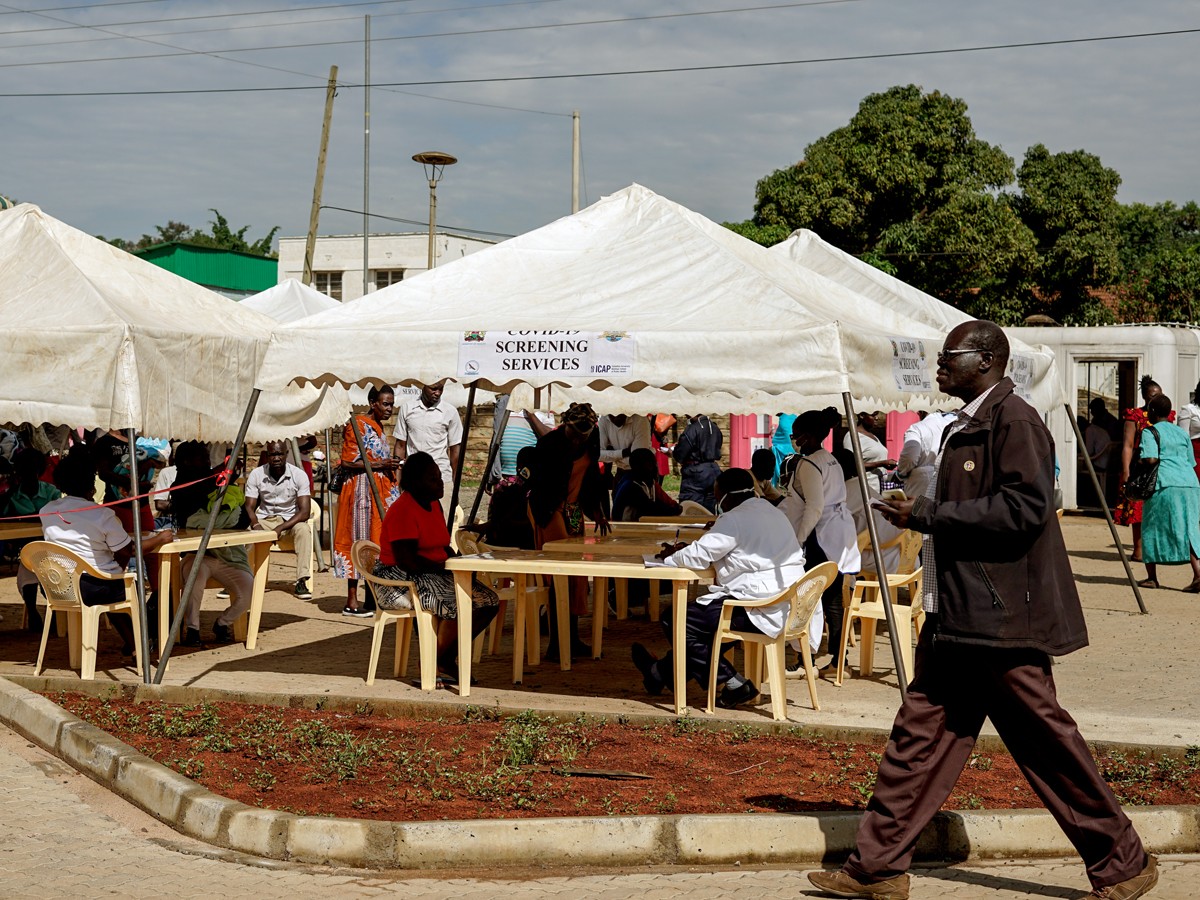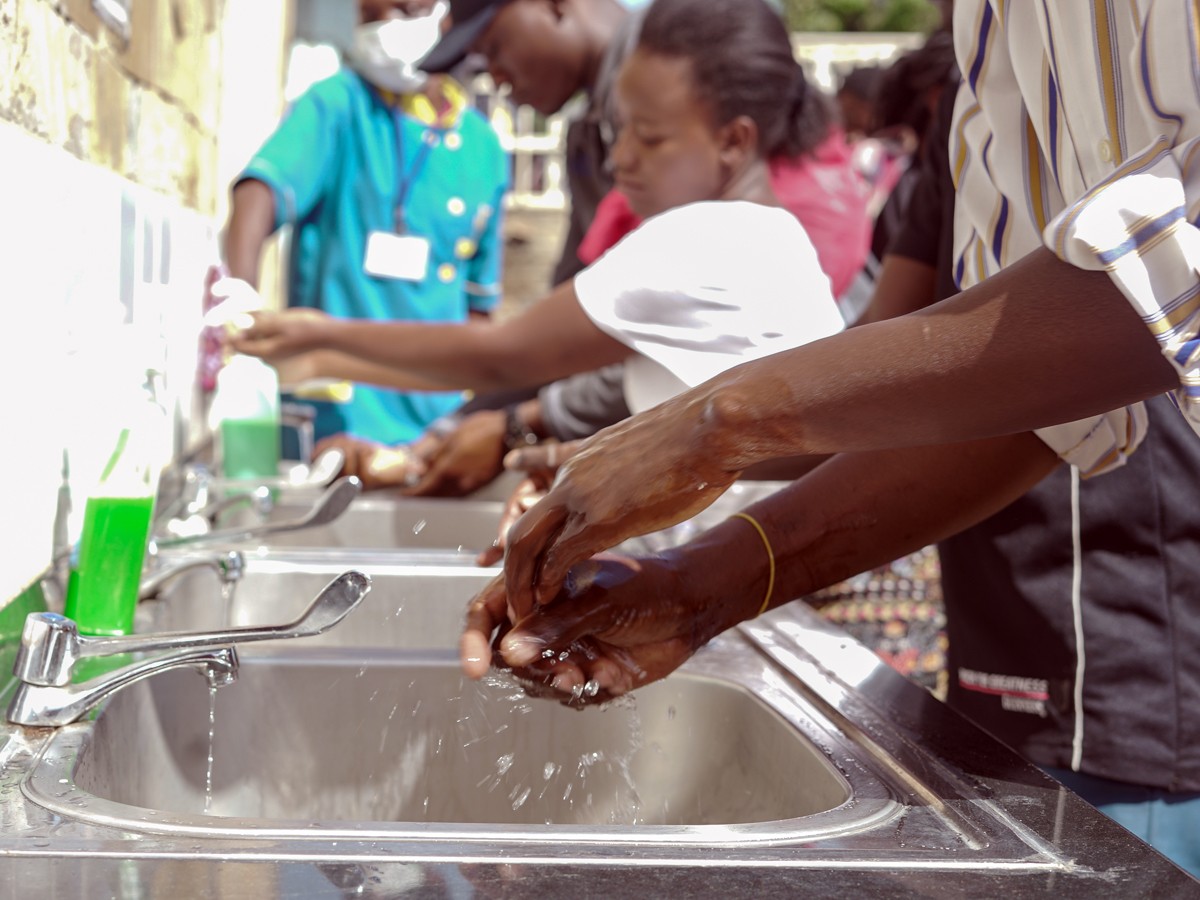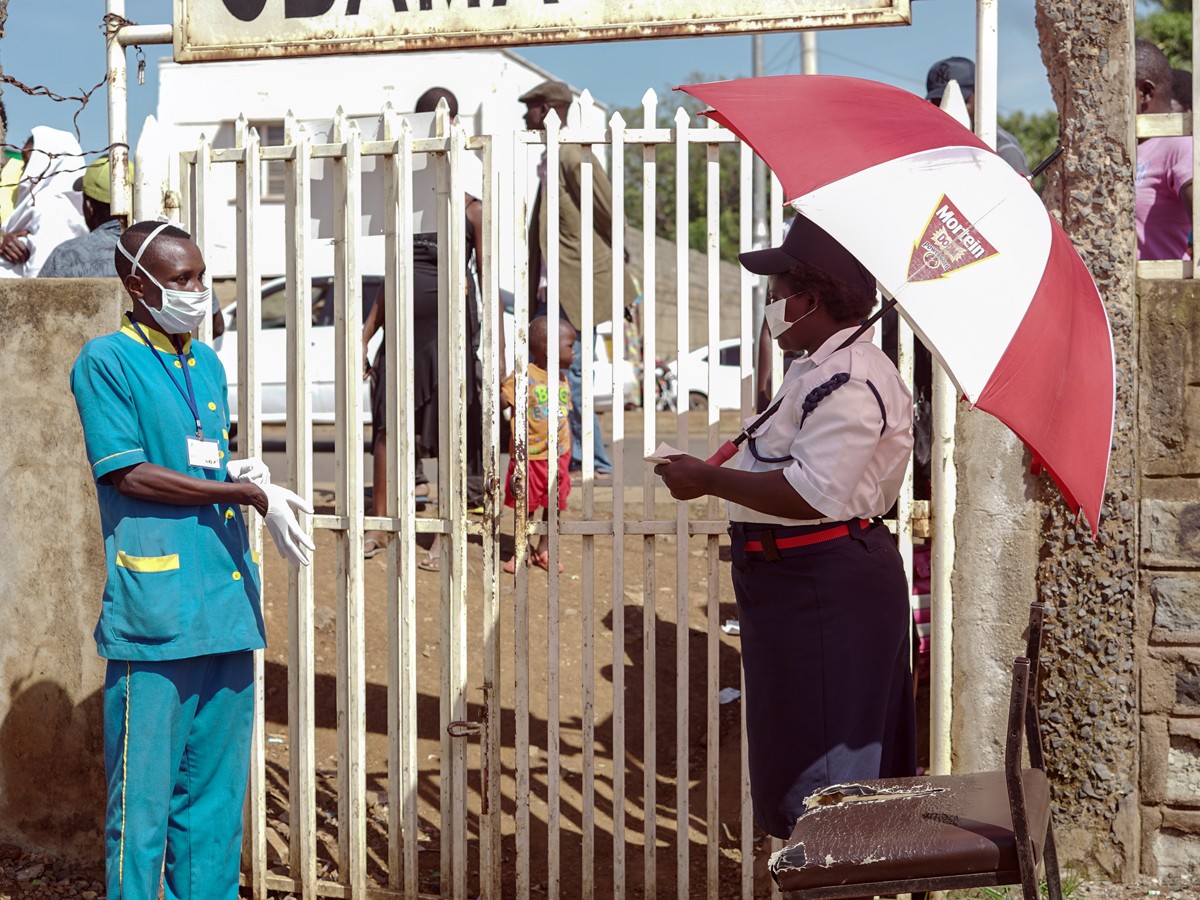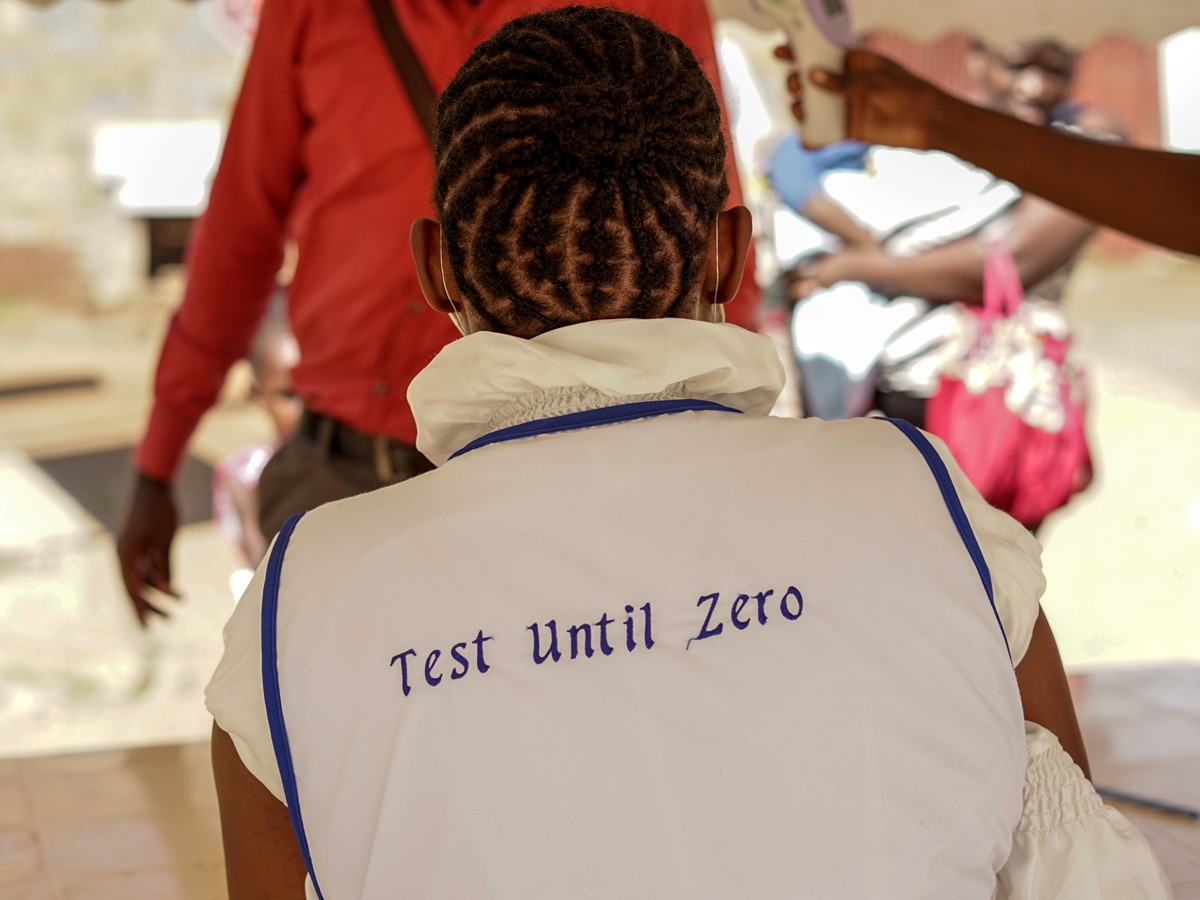As the novel coronavirus continues to spread across the globe, ICAP at Columbia University has rapidly mobilized to respond through a series of high-impact initiatives in countries with fragile health systems and vulnerable communities. “ICAP has a long history of working with countries that stand to be hardest hit by conditions like COVID-19, and our goal is to help these countries be as prepared as possible when the pandemic arrives in full force in their communities,” said Wafaa El-Sadr, MD, MPH, MPA, founder and global director of ICAP. “A new series of partnerships is giving us the ability to move quickly and decisively to support the response in sub-Saharan Africa and beyond.”
In its rapid response to the COVID-19 threat, ICAP is drawing upon its robust experience in capacity building and technical assistance to support health worker training, laboratory and health information systems, and infectious disease surveillance. With a newly acquired mix of corporate, foundation, and individual philanthropic funding directed toward the growing pandemic, ICAP has been able to launch a series of high-impact projects in record time, repositioning well-established technical teams to meet the needs of susceptible populations in the path of the pandemic.

COVID-19 screening tents at at the Jaramogi Oginga Odinga Teaching and Referral Hospital (JOOTRH) in Kisumu, Kenya
Health Brigades, Fever Clinics, and a Song to Take On COVID-19
In Kenya, Mozambique, and Sierra Leone – three countries where ICAP has built versatile, high-performance teams on the ground to support PEPFAR-sponsored health programs – ICAP is launching training and systems to bolster the ability of health care workers to respond effectively to the anticipated outbreaks of COVID-19.
In Mozambique’s Nampula province, ICAP has moved quickly to strengthen COVID-19 case monitoring and management and contact-tracing activities. In addition, ICAP is working to stock the provincial isolation center with vital supplies and equipment for both health care workers and COVID-19 patients in critical condition.
In Kenya, ICAP’s team is expanding its ongoing support for the Jaramogi Oginga Odinga Teaching and Referral Hospital (JOOTRH) in Kisumu, strengthening the existing triage system with appropriate referral and care of confirmed COVID-19 cases either in self-isolation at home or in JOOTRH’s isolation unit. ICAP will also provide education materials and a locally sewn cloth mask to patients upon discharge and has set-up a hospital hotline to provide information throughout the community.
In Sierra Leone, ICAP is introducing a triage station (also known as a “fever clinic”) at the entrance of the King Harman Hospital in Freetown to protect health care workers and patients from infection, collect COVID-19 tests, assess patients, and make appropriate referrals. In surrounding community districts, ICAP is creating mobile health brigades staffed with health volunteers who have been trained in infection prevention and control and equipped with protective gear, to disseminate critical information and services using nationally approved information education and communication (IEC) materials.

Handwashing station at the Jaramogi Oginga Odinga Teaching and Referral Hospital (JOOTRH) in Kisumu, Kenya
ICAP’s ability to quickly activate its teams to respond to COVID-19 in these three countries is being made possible by a generous gift from business leader Bing Zhao, which is being shared by ICAP and researchers at Columbia University’s School for Engineering and Applied Sciences to help combat the coronavirus pandemic through strong, rapid-response initiatives.
Additionally, working through its team in Zimbabwe, ICAP has leveraged Dr. Zhao’s gift to work with acclaimed musician Albert Nyathi to create a popular song — “Apart/Together: We Stand Strong Against COVID” — to sensitize communities to the dangers of COVID-19 and how they can stay safe. The song will be made available to countries throughout Sub-Saharan Africa to encourage the public health behaviors that will help populations flatten the infection curve and mitigate the pandemic in their countries.
Read the story behind the song
“This is an unprecedented challenge, and I felt it was imperative to contribute in any way I could,” said Zhao. “Columbia University has been on the frontlines since this crisis began, addressing the urgent need for therapeutic inventions, rapid diagnostics, and assistance for developing nations with the world’s most fragile health care systems.”
Frontline Support in Kazakhstan
ICAP’s decade-long support to implementation of HIV and opioid prevention, care, and treatment programs as well improving the national population-based surveillance systems in Central Asia has positioned it to act with agility to support the response to COVID-19 in Kazakhstan, which is experiencing the most widespread outbreak in the region.
Through a grant from Chevron, ICAP has mobilized its team in Kazakhstan to help improve capacity of health care facilities to establish and implement effective infection prevention and control measures that will impede the spread of the coronavirus and limit infections among frontline health workers.
As the first activity under the project the project, ICAP collaborated closely with the Kazakhstan Ministry of Health to organize a 15-day official visit of a delegation from China consisting of infectious disease doctors, epidemiologists, and public health professionals with experience managing the COVID-19 epidemic to Kazakhstan. The idea of the visit was initiated by the President of Kazakhstan, Kassym-Jomart Tokayev and supported by the President of China Xi Jinping. During the visit, Chinese doctors traveled to the three largest cities, where they conducted on-site visits to the hospitals and facilitated online training sessions to share their own experiences managing patients and organizing epidemic control measures.
“This visit is very important as it supports global collaboration and information exchange, and helps the Ministry of Health to find the optimal way for the country to address the COVID-19 epidemic by learning and adapting best global practices,” said Anna Deryabina, MD, DrPH, MScIH, ICAP’s regional director in Central Asia.
Working with the Ministry of Health, ICAP is also developing COVID-19-related training materials for health care workers and tools to monitor and assess infection prevention and control practices at health facilities. Additionally, ICAP is facilitating procurement and delivery of medical supplies – including test kits, respirators, masks, and gloves – to selected facilities designated to care for COVID-19.

A health worker wearing a mask and gloves handles medications at an ICAP-supported facility in Kazakhstan
Finally, under this partnership, ICAP is working with Chevron’s team in Almaty, Kazakhstan to identify and address needs of socially vulnerable populations affected by the COVID-19.
“Thanks to this support from Chevron, we are able to pivot rapidly into supporting Kazakhstan early on in the epidemic, and we are hopeful we can stay ahead of the curve and meet the demand for testing and care of those affected by COVID-19,” said Deryabina.
Multi-country Training Initiatives
ICAP’s extensive experience in health care worker training, mentoring and supportive supervision is a critical asset in the midst of the COVID-19 pandemic. A partnership between ICAP and Resolve to Save Lives, an initiative of the global public health organization Vital Strategies, will enable ICAP to provide rapid high-impact training in 13 African countries using a mix of in-person and virtual resources to empower district health management teams and frontline health care workers.
ICAP has a longstanding presence in each of the 13 countries – Angola, Burundi, Côte d’Ivoire, Eswatini, Kenya, Lesotho, Malawi, Mozambique, Rwanda, Sierra Leone, South Sudan, Tanzania, and Zambia – and can leverage its well-established offices and expert staff. ICAP will build on its success in establishing virtual learning platforms and communities of practice to scale up training as part of this project.
“From live distance learning to tele-mentoring and WhatsApp™ support groups, ICAP has been pioneering virtual training, supervision, and support of health care workers in resource-limited settings,” said Miriam Rabkin, MD, MPH, ICAP’s director for Health Systems Strategies. “With the support of the Resolve to Save Lives initiative, we will be able to train at scale, enabling health care workers to protect themselves, their patients and their communities.”

One Future, One Health
The sudden and rapid spread of COVID-19 around the world is a potent reminder of the critical need for vigilance against emerging infectious disease threats. ICAP is acting now, bringing its experience to bear on heading off the threat of another potential public health crisis: the threat of antimicrobial resistance.
In Eswatini, rising antimicrobial resistance is reducing the efficacy of antimicrobial therapeutics and threatens advances in public health. As antimicrobial resistance impacts both human and animal health, ICAP is partnering with the Government of Eswatini to roll out a multisectoral “One Health” response to this health challenge. One Health is an approach that recognizes that the health of people is closely connected to the health of animals and our shared environment.
With financial support from The Fleming Fund, a United Kingdom-based program created to respond to the global threat of antimicrobial resistance, ICAP will work with the Eswatini Ministry of Health, Ministry of Agriculture, University of Eswatini /faculty of Agriculture and Animal Husbandry and the Eswatini Antimicrobial Resistance Containment Committee (AMRCC) to strengthen local capacity to develop a surveillance system for national antimicrobial resistance, use, and consumption using the One Health approach. ICAP will provide comprehensive technical assistance to governmental and non-governmental stakeholders to enhance capacity to conduct high-quality, timely diagnosis and reporting of antimicrobial resistance data in the human and animal health sectors; and align the health surveillance system with global efforts to ensure Eswatini complies with the WHO Global Antimicrobial Resistance Surveillance System (GLASS) requirements.
“Even as we work to address the current COVID-19 pandemic, the ongoing HIV and tuberculosis health threats in the country, we must continue to prepare for the future,” said Ruben Sahabo, MD, ICAP’s country director in Eswatini. “The rising rate of antimicrobial resistance is a threat that needs to be urgently addressed.”
“This is a daunting time for the global community,” said El-Sadr. “Epidemics know no borders and we at ICAP are committed to bringing our experience and resources to bear in responding to COVID-19 even as we continue to address the many ongoing public health challenges in the countries where we work.”
A global health leader since 2003, ICAP was founded at Columbia University with one overarching goal: to improve the health of families and communities. Together with its partners—ministries of health, large multilaterals, health care providers, and patients—ICAP strives for a world where health is available to all. To date, ICAP has addressed major public health challenges and the needs of local health systems through 6,000 sites across more than 30 countries.








